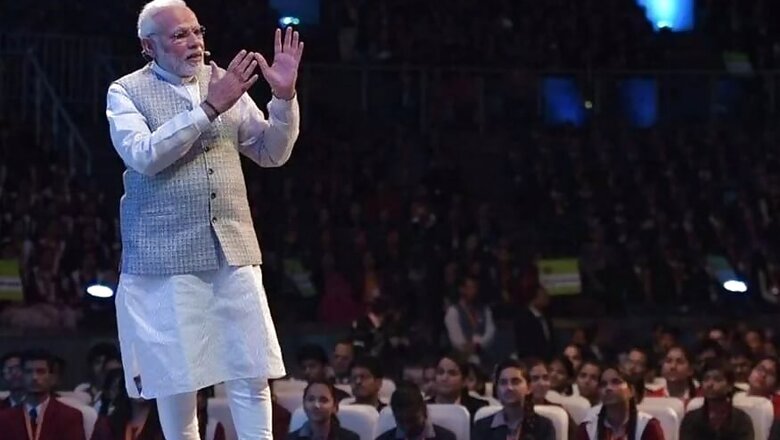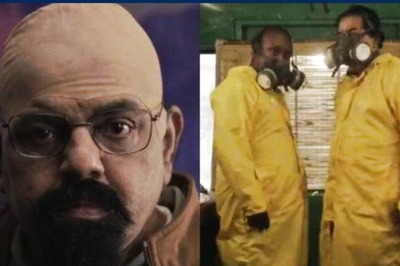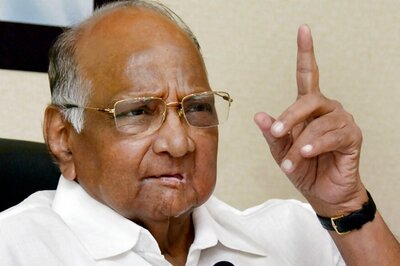
views
The third edition of 'Pariksha Pe Charcha', an annual interactive session of Prime Minister Narendra Modi with students, parents, and teachers on various exam-related issues, took place on January 20.
For all reasons, it is one of the most important events of the year. While the main idea of this interactive session has been to help students “beat exam stress”, its utility goes beyond this immediate goal.
India’s demographic statistics is a source of envy for the world for the simple reason that as populations in countries such as the United States of America, China, and Japan are getting older, India’s population is getting younger.
In economics, there is a term called demographic dividend, which means the percentage of the young and working population out of the total population. This demographic dividend is India's one of the biggest strengths that can contribute substantially to the nation’s growth story.
The Prime Minister rightly said, “In whatever the country does in this decade, those kids who are in 10th, 11th and 12th standards now have a very great role to play. To make the country reach new heights, to achieve new hopes, all this is dependent on this new generation".
By all means, it is these children, at the cusp of adulthood, who are the future of the country. Their individual growth stories will collectively decide the county’s growth story and its future.
And, India is fortunate to have a larger percentage of its population in this age group. However, amid this opportunity lies a challenge too. How to ensure that this young population equips itself with the right attitude to become future leaders. How to explain that their abilities go beyond their marks in board exams or any other competitive exam.
A host of surveys have highlighted the fact that buckled under the exam pressure, unable to cope with the stress of scoring good grades, many potential performers fail to give their best and succumb to depression.
According to a news report, 443 students under 18 years of age committed suicide in the national capital between 2014 and 2018. Exam pressure and the inability to cope with it were found to be the main reasons that pushed students to take such extreme steps.
In this scenario, it becomes our utmost moral responsibility to engage with the students, try and understand their concerns and help them fight their fears and anxieties. In this context, ‘Pariksha Pe Charcha’ serves as a model template.
It is an old axiom that fear of failure is the father of failure. First, we have to make our students understand what failure actually means. They need to be told that in no manner their inability to get the desired grades is a failure.
The PM also rightly said, “Marks are not life. Similarly, an examination is not the determining factor for our whole life. It is a stepping stone, an important stepping stone in life. I pray to parents don’t tell them that this is everything. If it does not happen, don’t behave as if you lost everything. You can go to any field. There are umpteen opportunities”.
The students need to be trained to firmly believe in this adage that no "success is final and no failure is fatal". They need to know and understand that from making the first electric bulb to launching solar and lunar missions, they are all stories of epic failures, which were transformed into stories of great success.
We have to make our children believe that failure just means one thing, which is not to give one’s best in positive circumstances. The rest are minor setbacks that they can overcome by perseverance and a strong determination to succeed.
We have to instill a positive attitude in our children so that they can treat every failure as a stepping stone to success. For this, we have to learn to speak to students in their language, the language of their aspirations and dreams.
PM Modi used a perfect language and put forward perfect examples to convince students about this. He talked about Chandrayaan that would resonate with young minds to a great measure. After all, all of us, at one point or another in our school life, have dreamt of being an astronaut, walking in those jazzy spacesuits.
“Motivation, demotivation is very common. Everyone goes through these feelings. In this regard, I can never forget my visit to ISRO during Chandrayaan and the time spent with our hardworking scientists. We should not look at failures as setbacks or stumbling blocks. We can add enthusiasm to every aspect of life. A temporary setback doesn’t mean that we cannot succeed in life. In fact, a setback may mean that the best is yet to come. We should try to convert our distressed situations as stepping stones for a bright future," he said.
And to buttress his point further, he gave examples of how cricketers Rahul Dravid and VVS Laxman batted in difficult situations during the India-Australia match in 2001 to clinch victory from the jaws of defeat.
He also talked about how Indian bowler Anil Kumble bowled to India’s glory notwithstanding his injury. This is such an apt example. Millions of students follow cricket like religion and treat cricketers as their idols. Life stories of such icons will surely be well received by young students.
‘Pariksha Pe Charcha’ gives us a perfect template on how to deal with concerns of students and this should be replicated at as many platforms as possible. This would not only help students address their short-term anxieties related to exams, but also serve the larger purpose of instilling the right attitude among the younger generation in dealing with the minor and major setbacks in life.
The essence of PM Modi’s most important message during his interaction with students on January 20 was that we have to create an atmosphere where students are neither burdened with the weight of school bags nor with the expectations of their parents. They should be allowed to express themselves freely and realize their inner talent. And that is perhaps the most vital role of any education system.
(The author is MLA from Noida constituency. Views are personal.)



















Comments
0 comment